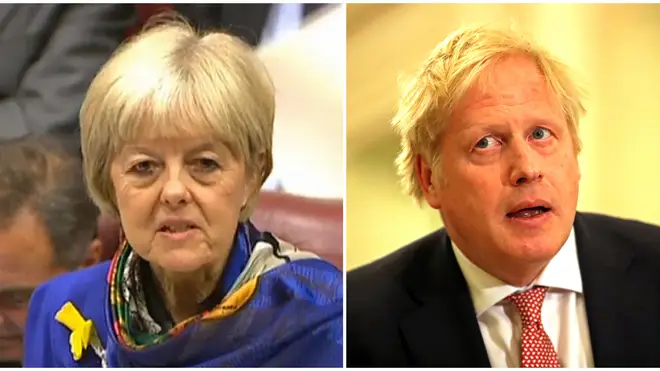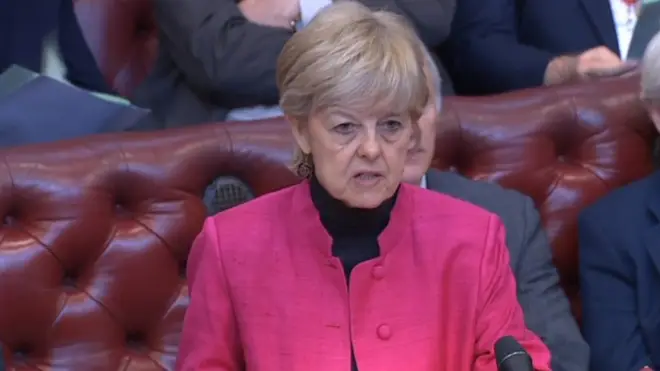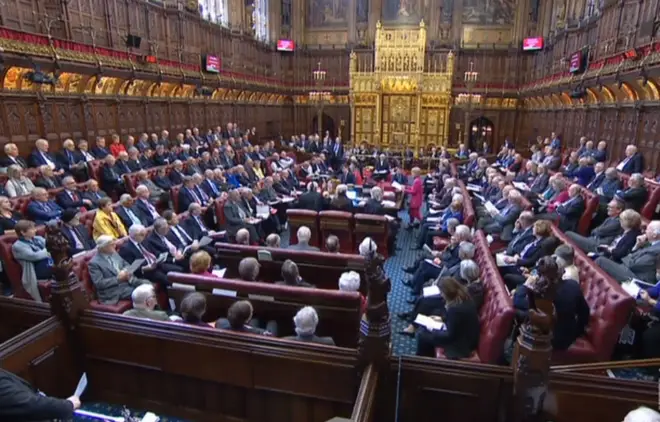
Richard Spurr 1am - 4am
13 January 2020, 19:56

A Labour Lord has accused Boris Johnson's government of trying to "ram" his Brexit deal through Parliament.
The government has also received criticism in the Upper Chamber for being unwilling to accept changes to the legislation.
Mr Johnson's EU (Withdrawal Agreement) Bill has already passed through the Commons, winning large majorities in each of the votes - a stark contrast to the long and drawn-out process that has defined previous attempts to implement a divorce deal.
However, opposition spokeswoman Baroness Hayter of Kentish Town has described the legislation as "poor."
She said ministers were acting in an "arrogant" and "stupid" manner to ensure the UK completes its departure from the EU on 31 January - also known as "Brexit Day".
When opening the second reading debate on the Bill, Lady Hayter said the "normal democratic method of law-making" was being disregarded.
The spokeswoman then accused the government of being "determined to allow no changes" to the deal.

"This is both stupid because it will mean corrections having to be made later but also arrogant with scant regard to our normal democratic method of law-making," she said.
The baroness also rubbished the idea that the government will have a comprehensive deal with the EU by the end of the transition period in December, saying it was "for the birds."
In response, Brexit minister Lord Callanan said support from the Lords would allow Parliament to honour the result of the 2016 referendum.
He said that getting "Brexit done" would allow the country to move forward and "focus on our other national priorities."
Lord Callanan threw his support behind the legislation, saying it gave clarity to businesses, protected the rights of citizens and "ensures we regain control of our money, our borders and our laws."

Peers in the Lords are split over how much resistance they should offer to the legislation.
On the one hand, some argue they must fulfil their role as a scrutinising body, whereas others suggest that amendments that dilute the Bill could lead to further public distrust.
Lady Hayter also warned the country could still leave the EU with no deal in place.
She then accused the prime minister's government of a "shameful disregard of the rights of vulnerable refugee children to be reunited with their families here."
It is believed opposition peers wish to reintroduce provisions that allow unaccompanied child refugees to continue to be reunited with their families in the UK post-Brexit.

However, Lord Callanan insisted the government's policy had not changed and it remained fully committed to the principle of family unity and supporting vulnerable children.
Liberal Democrat leader in the Lords Lord Newby said: "The fact that the Government has a large majority and has indicated that it has no intention of accepting any changes whatsoever to the Bill is no excuse for failing to scrutinise and challenge its detailed provisions.
"Nor from voting to secure changes which we believe are in the interests of individuals or the country as a whole."
Tory former Cabinet minister Lord Forsyth of Drumlean said the Lords would look "ridiculous" if it sent amendments to the Bill back to the Commons.
And fellow Tory peer Lord Barwell warned the government about the timetable of establishing a future relationship with the EU.
"I understand why the government doesn't want to extend the transition period, but there simply isn't time to negotiate the entire future relationship, have it ratified by national parliaments and for business to prepare to implement it in 11 months," he said.